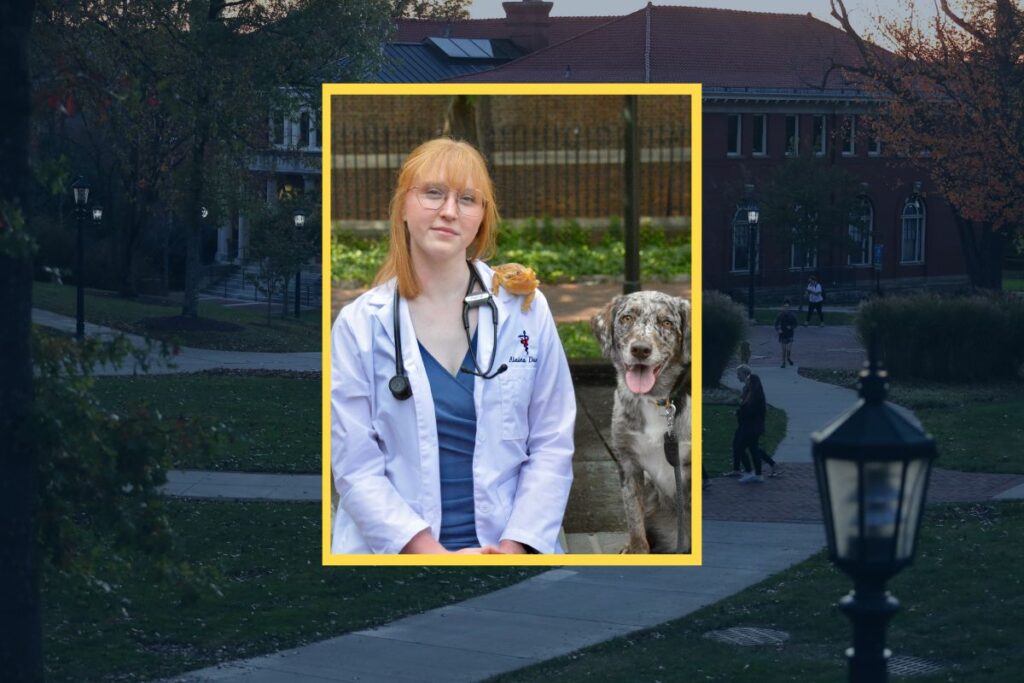
One experience can change the trajectory of your life. For Alaina Duessel ’20, volunteering at Tamarack Wildlife Center in Saegertown, Pennsylvania instilled a passion for wildlife medicine and led to her pursuing a veterinary degree at the University of Pennsylvania (Penn).
After graduating from Allegheny College with a bachelor’s degree in environmental science and sustainability and biology, Duessel worked as a veterinary technician in Cranberry Township, Pennsylvania, for two years before attending veterinary school.
“Allegheny’s rigorous curriculum and focus on independent research gave me the scientific foundation and problem-solving skills essential for veterinary medicine,” says Duessel. “My Senior Comprehensive Project taught me how to design and execute research projects, which is a key part of veterinary diagnostics and conservation work.”
At Penn, Duessel is entering her last two years of clinical rotations. She remains active as the student representative for the pharmaceutical company Elanco and has served in leadership roles within the Special Species Club and Wildlife Disease Association. Currently, she is in the process of founding a student chapter of the Honeybee Veterinary Consortium and Honeybee Medicine Club.
The most rewarding aspect of my career is knowing that I am making a tangible impact on wildlife conservation and animal health. Whether it’s caring for rehabilitated wild animals, addressing honeybee health issues, or performing surgeries, I am driven by the opportunity to preserve animal life and contribute to the broader ecosystem,” reflects Duessel.
Duessel was recently selected as one of five students from the School of Veterinary Medicine to be awarded an American Kennel Club Veterinary Outreach Scholarship. She credits Allegheny College for providing the foundation to succeed.
“The push for unusual combinations at Allegheny has been invaluable,” remarks Duessel. “Veterinary medicine is deeply intertwined with ecological health, especially in wildlife care and conservation. My background in environmental science and biology helps me understand the broader context of an animal’s health, including habitat, nutrition, and ecosystem interactions.”


